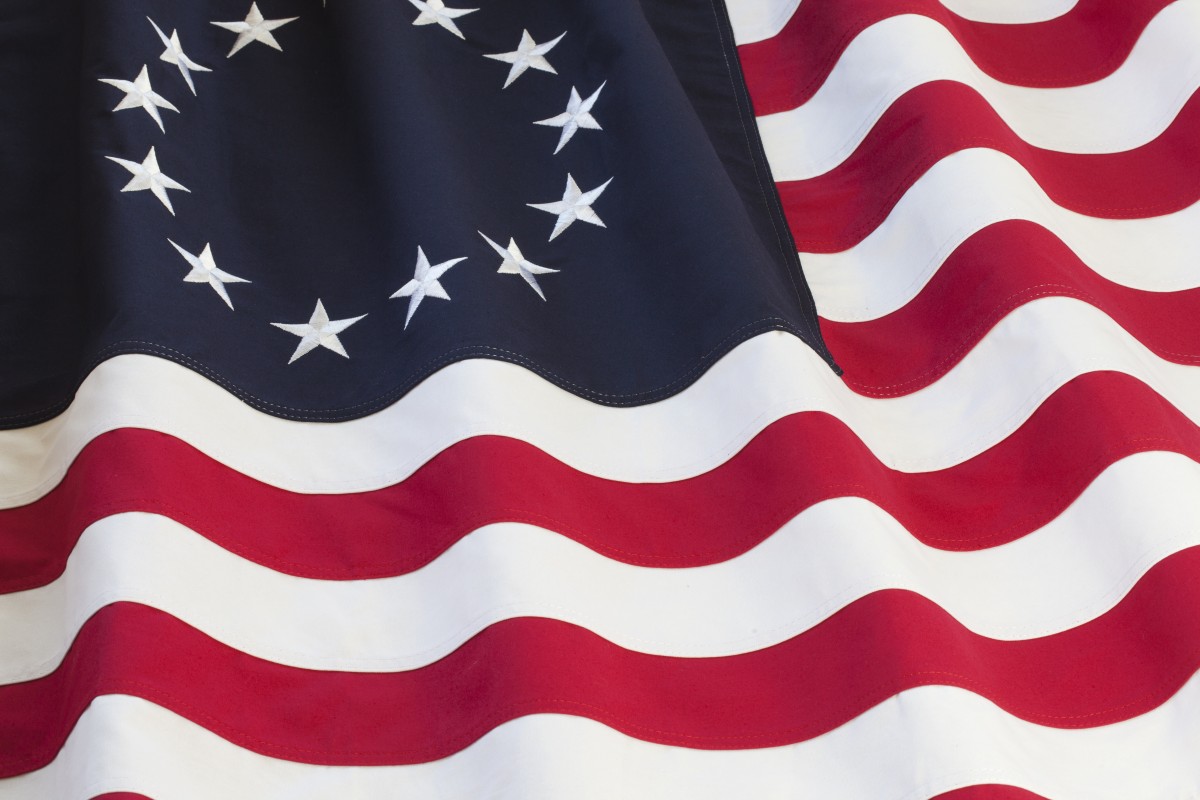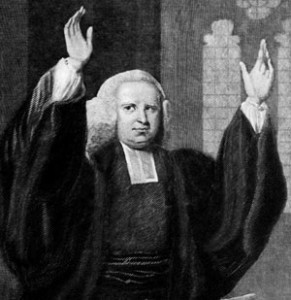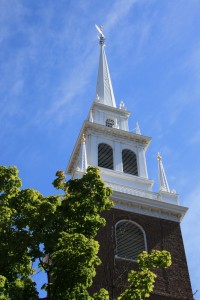
Cultural Issues
Independence Day
It is Independence Day in the U.S. A day that gives opportunity to remember, consider, and appreciate the incredible work our revolutionary forefathers wrought. They took on the British empire, the most powerful nation on earth, and won. The fight was incredibly ambitious. Revolutionary War battles and struggles were not only against the British army and naval forces, but also against loyalists; fence sitters; deserters; internal turmoil and division; weather; hunger; lack of provision, weapons and ammunition; and mercenaries and allies of the British Empire. The war lasted over 8 years. More Americans died as British prisoners of war than died on the battlefield. An estimated casualty figure of 50,000 dead and wounded equates to a proportional figure of 7.2 million dead or wounded compared to the current U.S. population.
The Declaration of Independence: A Transcription
IN CONGRESS, July 4, 1776.
The unanimous Declaration of the thirteen united States of America,When in the Course of human events, it becomes necessary for one people to dissolve the political bands which have connected them with another, and to assume among the powers of the earth, the separate and equal station to which the Laws of Nature and of Nature’s God entitle them, a decent respect to the opinions of mankind requires that they should declare the causes which impel them to the separation.
We hold these truths to be self-evident, that all men are created equal, that they are endowed by their Creator with certain unalienable Rights, that among these are Life, Liberty and the pursuit of Happiness.–That to secure these rights, Governments are instituted among Men, deriving their just powers from the consent of the governed, –That whenever any Form of Government becomes destructive of these ends, it is the Right of the People to alter or to abolish it, and to institute new Government, laying its foundation on such principles and organizing its powers in such form, as to them shall seem most likely to effect their Safety and Happiness. Prudence, indeed, will dictate that Governments long established should not be changed for light and transient causes; and accordingly all experience hath shewn, that mankind are more disposed to suffer, while evils are sufferable, than to right themselves by abolishing the forms to which they are accustomed. But when a long train of abuses and usurpations, pursuing invariably the same Object evinces a design to reduce them under absolute Despotism, it is their right, it is their duty, to throw off such Government, and to provide new Guards for their future security.–Such has been the patient sufferance of these Colonies; and such is now the necessity which constrains them to alter their former Systems of Government. The history of the present King of Great Britain is a history of repeated injuries and usurpations, all having in direct object the establishment of an absolute Tyranny over these States. To prove this, let Facts be submitted to a candid world.He has refused his Assent to Laws, the most wholesome and necessary for the public good.
He has forbidden his Governors to pass Laws of immediate and pressing importance, unless suspended in their operation till his Assent should be obtained; and when so suspended, he has utterly neglected to attend to them.
He has refused to pass other Laws for the accommodation of large districts of people, unless those people would relinquish the right of Representation in the Legislature, a right inestimable to them and formidable to tyrants only.
He has called together legislative bodies at places unusual, uncomfortable, and distant from the depository of their public Records, for the sole purpose of fatiguing them into compliance with his measures.
He has dissolved Representative Houses repeatedly, for opposing with manly firmness his invasions on the rights of the people.
He has refused for a long time, after such dissolutions, to cause others to be elected; whereby the Legislative powers, incapable of Annihilation, have returned to the People at large for their exercise; the State remaining in the mean time exposed to all the dangers of invasion from without, and convulsions within.
He has endeavoured to prevent the population of these States; for that purpose obstructing the Laws for Naturalization of Foreigners; refusing to pass others to encourage their migrations hither, and raising the conditions of new Appropriations of Lands.
He has obstructed the Administration of Justice, by refusing his Assent to Laws for establishing Judiciary powers.
He has made Judges dependent on his Will alone, for the tenure of their offices, and the amount and payment of their salaries.
He has erected a multitude of New Offices, and sent hither swarms of Officers to harrass our people, and eat out their substance.
He has kept among us, in times of peace, Standing Armies without the Consent of our legislatures.
He has affected to render the Military independent of and superior to the Civil power.
He has combined with others to subject us to a jurisdiction foreign to our constitution, and unacknowledged by our laws; giving his Assent to their Acts of pretended Legislation:
For Quartering large bodies of armed troops among us:
For protecting them, by a mock Trial, from punishment for any Murders which they should commit on the Inhabitants of these States:
For cutting off our Trade with all parts of the world:
For imposing Taxes on us without our Consent:
For depriving us in many cases, of the benefits of Trial by Jury:
For transporting us beyond Seas to be tried for pretended offences
For abolishing the free System of English Laws in a neighbouring Province, establishing therein an Arbitrary government, and enlarging its Boundaries so as to render it at once an example and fit instrument for introducing the same absolute rule into these Colonies:
For taking away our Charters, abolishing our most valuable Laws, and altering fundamentally the Forms of our Governments:
For suspending our own Legislatures, and declaring themselves invested with power to legislate for us in all cases whatsoever.
He has abdicated Government here, by declaring us out of his Protection and waging War against us.
He has plundered our seas, ravaged our Coasts, burnt our towns, and destroyed the lives of our people. He is at this time transporting large Armies of foreign Mercenaries to compleat the works of death, desolation and tyranny, already begun with circumstances of Cruelty & perfidy scarcely paralleled in the most barbarous ages, and totally unworthy the Head of a civilized nation.
He has constrained our fellow Citizens taken Captive on the high Seas to bear Arms against their Country, to become the executioners of their friends and Brethren, or to fall themselves by their Hands.
He has excited domestic insurrections amongst us, and has endeavoured to bring on the inhabitants of our frontiers, the merciless Indian Savages, whose known rule of warfare, is an undistinguished destruction of all ages, sexes and conditions.In every stage of these Oppressions We have Petitioned for Redress in the most humble terms: Our repeated Petitions have been answered only by repeated injury. A Prince whose character is thus marked by every act which may define a Tyrant, is unfit to be the ruler of a free people.
Nor have We been wanting in attentions to our Brittish brethren. We have warned them from time to time of attempts by their legislature to extend an unwarrantable jurisdiction over us. We have reminded them of the circumstances of our emigration and settlement here. We have appealed to their native justice and magnanimity, and we have conjured them by the ties of our common kindred to disavow these usurpations, which, would inevitably interrupt our connections and correspondence. They too have been deaf to the voice of justice and of consanguinity. We must, therefore, acquiesce in the necessity, which denounces our Separation, and hold them, as we hold the rest of mankind, Enemies in War, in Peace Friends.
We, therefore, the Representatives of the united States of America, in General Congress, Assembled, appealing to the Supreme Judge of the world for the rectitude of our intentions, do, in the Name, and by Authority of the good People of these Colonies, solemnly publish and declare, That these United Colonies are, and of Right ought to be Free and Independent States; that they are Absolved from all Allegiance to the British Crown, and that all political connection between them and the State of Great Britain, is and ought to be totally dissolved; and that as Free and Independent States, they have full Power to levy War, conclude Peace, contract Alliances, establish Commerce, and to do all other Acts and Things which Independent States may of right do. And for the support of this Declaration, with a firm reliance on the protection of divine Providence, we mutually pledge to each other our Lives, our Fortunes and our sacred Honor.There were 56 signatories of the Declaration (not listed here).
Spiritual Connection
The seeds of the revolutionary war include a significant spiritual component. Many early colonists came to this continent seeking religious freedom. They were called pilgrims for a reason. Early settlers came from various religious congregations seeking relief from Europe’s volatile and cruel oppressions. While religious tolerance may not be an accurate term used to describe colonial America, religious diversity and respect were strong characteristics, albeit predominantly Christian. Colonists were not a unified group, there were many independent and disparate groups including Separatists, Puritans, Baptists, Anabaptists, Catholics, and Quakers. Spiritual and religious life were a fundamental and important aspect of the colonization of the new continent. Still, group affiliation was not a precondition for respect or acceptance into even the top echelons of the community. At least one prominent Catholic signed the Declaration of Independence, two were signatories to the Constitution. Although in this period there were only about 1,500 Jews scattered among the 13 colonies it is notable that the Revolutionary War provided the first time since their exile from Jerusalem that Jews would or could participate alongside their Christian neighbors as equals in a struggle for freedom.
As revolutionary as these practices were, when one considers that leaders predominantly possessed biblical faith and had their eyes set on the Creator, and were in relationship with Him, then it is quite understandable that the normal divisions between traditional, ethnic and racial groups would fade away as they did so dramatically during this period.
The Great Awakening
Out of the experiences of hardship and difficulties of the early settlers in the 1600’s came the Great Awakening of the 1730’s. Leaders of this movement such as George Whitefield (British Preacher), Gilbert Tenant (Presbyterian), Jonathan Edwards (Presbyterian/Reformed), and Jonathan Parsons (Evangelical pastor and leader), engaged the intellect, emotions, and spiritual attentions of the people. Strong conceptual fundamentals were honed and taught as well as emphasis on experiential and applied Christianity in the individual, the family and the community. Out of great diversity came a movement of incredible spiritual focus and power. The evangelical movement of the mid 1700’s played a key role in the development of thoughts on the role of government and the form of government itself. A revolutionary concept was developed, that belief and information should be free, unbiased, and uncontrolled. Demand for, and protection of, religious freedom was a major underpinning of social development in this period. Concepts such as unalienable rights, consent of the governed, and limited government were advanced. These concepts were nurtured, protected, developed and refined over the course of decades; they matured and led to the period of the American Revolution. The first Great Awakening was an unprecedented phenomenon that highlighted the fundamental value of the individual. The evangelist Whitefield was British, but participation in the Great Awakening included the Dutch, Germans, Native American, African Americans and others in large numbers as well. Traditional cultural, ethnic and racial barriers were realized to be spiritually inconsequential. America refined the characteristic that earned it the label as the world’s melting pot. All of this in the context of religious people attempting to live according to God’s word as they read and understood scripture.
Concepts such as unalienable rights, consent of the governed, and limited government were advanced. These concepts were nurtured, protected, developed and refined over the course of decades; they matured and led to the period of the American Revolution. The first Great Awakening was an unprecedented phenomenon that highlighted the fundamental value of the individual. The evangelist Whitefield was British, but participation in the Great Awakening included the Dutch, Germans, Native American, African Americans and others in large numbers as well. Traditional cultural, ethnic and racial barriers were realized to be spiritually inconsequential. America refined the characteristic that earned it the label as the world’s melting pot. All of this in the context of religious people attempting to live according to God’s word as they read and understood scripture.
A Warning
George Whitefield said from his perspective as a preacher from Mother England:
“I can’t in conscience leave the town without acquainting you with a secret, my heart bleeds for America! O poor New England! There is a deep laid plot against both your civil and religious liberties, and they will be lost. Your golden days are at an end. You have nothing but trouble before you”
The British evangelist spoke those words at a pastor’s conference in Portsmouth (New Hampshire), in 1764. His words are no less true today. Considering God, man, and spiritual life, isn’t this what we should expect? God deals with man on an individual and personal level. Generations come and go. God remains and is eternally unchanging. God deals with not only generations of men, but with men individually. Man lives on the fruits of what was earlier sown. Much of what a man sows doesn’t bear fruit in his lifetime.
Conclusion
There is much we have to appreciate from the work and sacrifice of the founders of this nation. We should be thankful. There is also much we could learn from listening to them today. They were well grounded in God’s word, which never changes. It turns out that man doesn’t really seem to change much either.



Discussion